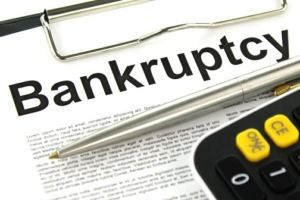News
Number of company bosses banned over bankruptcies in 2017 a new Danish record
This article is more than 7 years old.
New regulatory rules for companies imposed in 2013 have led to more bankruptcies than expected

More Danish CEOs are ending up in Queer Street than ever before (image: RM Media Ltd/Nick Youngson)
The CEO and board of directors of a company can be banned for a period – typically three years – if a court finds they acted with gross negligence in connection with the company going bankrupt.
In some cases it could be racking up grotesque expenses with any company prepared to give them credit – not dissimilar to the age-old organised crime practice – with no personal liability for the debt accrued.
The rules at present governing bankruptcy came into force on 1 January 2014, passed by a broad majority in Parliament, but they seem to have had an unintended consequence.
Too many crooks?
In only one year, the number of top executives who have been banned has doubled. According to figures from the Danish business authority, Erhvervsstyrelsen, today there are 1,832 executives on the banned list compared to 898 as of 31 December 2016, reports DR Nyheder.
“This is a surprisingly high number – almost three times as high as we estimated three years ago when the rules came into force, so it is something we are going to have to address,” said Sven Petersen, the head of business law at the Danish chamber of commerce, Dansk Erhverv.
Lars Lindencrone Petersen, a partner in the Bech-Bruun law firm and a previous chair of the bankruptcy council Konkursrådet, also voiced his surprise. “It takes a great deal to ban people, so seen in that light it is rather surprising that there are really so many who have been banned,” he said.
Coming out of the woodwork
According to Petersen, it is especially at companies with limited liability that the sinners are to be found, so the new figures have cast an unexpected light on a problem the extent of which was unknown four years ago.
READ ALSO: Danish voluntary network to teach European businesses how to avoid bankruptcy
Petersen also thinks there is a need for a closer look at the rules to see whether they are adequate or too strict. “Maybe the executives [who are banned] are condemned on far too flimsy evidence or perhaps we might find that the rules are fine and there really is a need to tighten up in this area,” he said.
Nevertheless, regardless of whether the consequences are severe enough for the individual, more people are getting caught and barred following the introduction of the new rules.
Nevertheless, many avoid punishment by using a strawman to take the fall. And in some cases, deliberately poor book-keeping is presented to implode the business – although sometimes this is a result of pure incompetence.










































